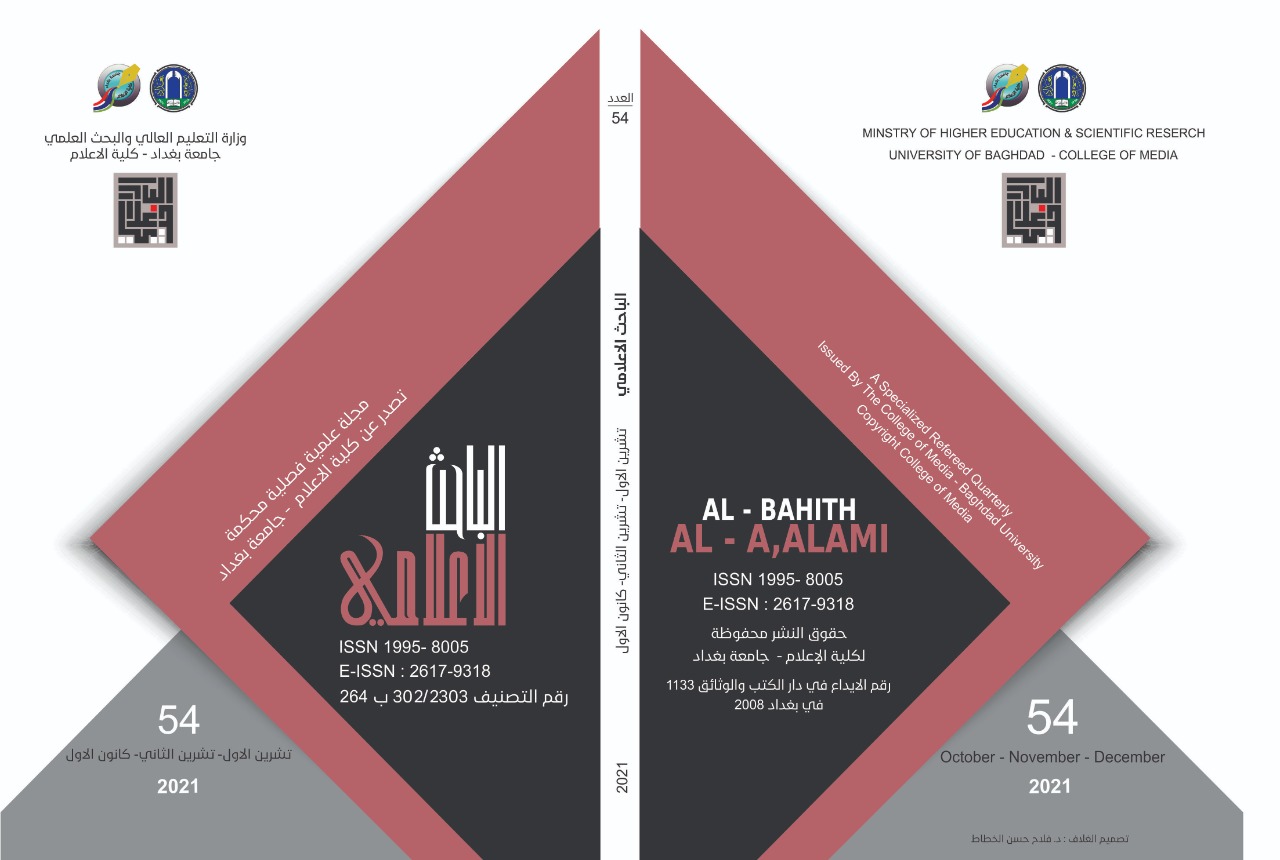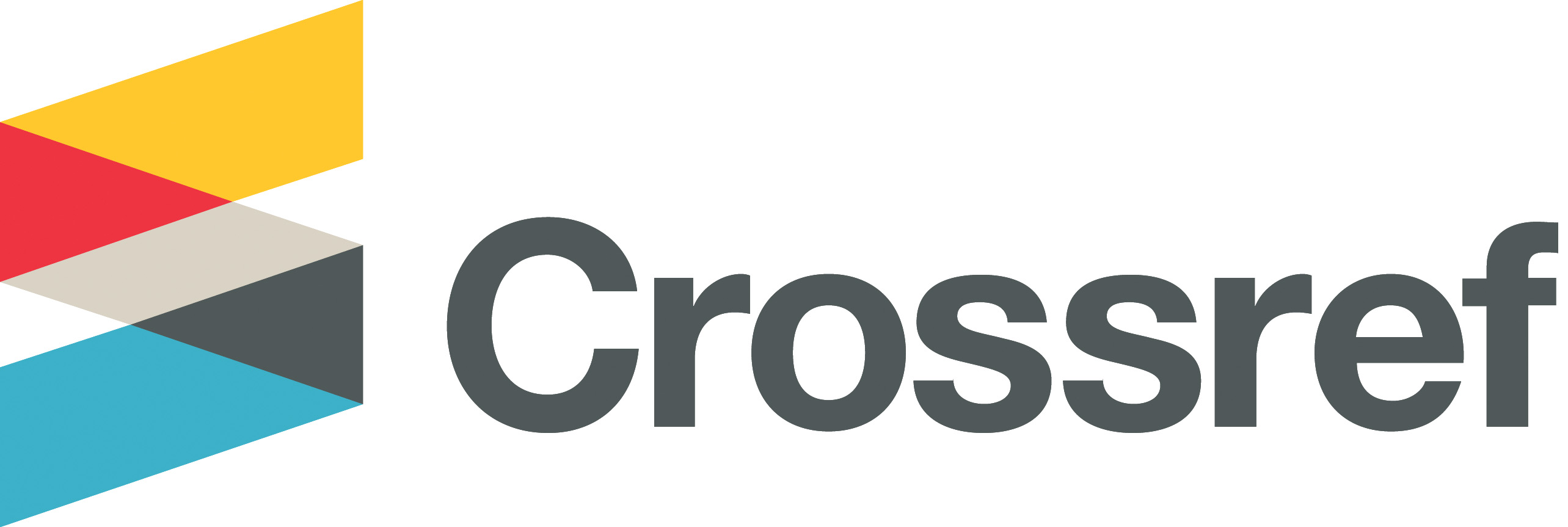The relationship of using the social networking site Facebook to the accumulation of social capital
(Survey study for a sample of students from the University of Algiers 3)
DOI:
https://doi.org/10.33282/abaa.v13i54.843Keywords:
social capital ; social networking sites ; intensity of use ; active and passive useAbstract
The subject of social capital is of great importance, as it provides an analytical framework for researchers interested in understanding the impact of the Internet on many dimensions of human and social life. And because social networking sites have infiltrated societies and produced new variables at the level of human and social communication, this study came to examine the relationship between the use of the social networking site Facebook and the accumulation of social capital among a sample of University of Algeria 3 students, by researching the variables of intensity of use and patterns of use as independent variables and their relationship to social capital. The results of the field study revealed a strong relationship between the intensity of Facebook use and social capital, the strongest of which was bridging capital. In addition, there is a strong relationship between active use and the accumulation of social capital. So the relationship between the use of Facebook and social capital varies according to the intensity of use of the site and patterns of use.
References
الزهرة غمشي . (2018). رأس المال الاجتماعي الافتراضي: قراءة في سوسيولوجيا العلاقات الاجتماعية في مواقع الشبكات الاجتماعية (دراسة على عينة من مستخدمي الفايسبوك الشباب في الجزائر). أطروحة دكتوراه منشورة. قسم علوم الإعلام والاتصال جامعة أحمد بن بلة، وهران. الجزائر.
داليا أحمد عاصم. (2013). ثقافة الفضاء الافتراضي ورأس المال الاجتماعي: دراسة استطلاعية لآليات التفاعل الاجتماعي على موقع فايسبوك. كلية الآداب: جامعة الاسكندرية.
رشاد وليد زكي. (2017). رأس المال الاجتماعي في المجتمع الافتراضي: عوامل البناء ومعوقات الاهدار (الإصدار 1). الرياض، المملكة العربية السعودية: دار قرطبة للنشر والتوزيع.
روبرت بوتنام. (2006). كيف تنجح الديمقراطية: تقاليد المجتمع المدني في ايطاليا الحديثة. (ايناس عفت، المترجمون) مصر: الجمعية المصرية لنشر المعرفة والثقافة العالمية.
محمد أمين لعليجي. (2016). دوافع استخدام موقع الفايسبوك وعلاقتها بتراكم رأس المال الاجتماعي –دراسة على عينة من المراهقين العاصميين. أطروحة دكتوراه غير منشورة في علوم الإعلام والاتصال. جامعة الجزائر3.
References
Bourdieu, P. (1980). Le Capital Social : Notes Provisoires. Actes de la Recherche en Sciences Sociales, pp. 2-3.
Chul, D., & Eom, T. (2009). Anticorruption effects of information communication and technology (ICT) and social capital. Intenational Review of Adminstrative Sciences, 99-116.
Claibourn, M., & Martin, P. (2007). The Third Face of Social Capital: How Membership in Voluntray Associations Improves Policy and Accountability. Political Research quarterly, 60(2), 192-201.
Coleman, J. S. (1988). Social Capital in the Creation of Human Capital. The American Journal of Sociology, 94, 95-120.
Donath,, J., & Boyd, D. (2004). Public Displays of Connection. BT Technology Journal, 22(4).
Ellison, N. B., Lampe, C., & Steinfield, C. (2007). The Benefits of Facebook ‘‘Friends:’’ Social Capital and College Students’ Use of Online Social Network Sites. Journal of Computer-Mediated Communication(12), pp. 1143–1168.
Ellison, N., Vitak, J., Gray, R., & Lampe, C. (2014). Cultivating Social Resources on Social Network Sites: Facebook Relationship Maintenance Behaviors and Their Role in Social Capital Processes. Journal of Computer-Mediated Communication, 19, 855–870.
Frison, , E., & Eggermont, S. (2015). Exploring the Relationships Between Different Types of Facebook Use, Perceived Online Social Support, and Adolescents’ Depressed Mood. Social Science Computer Review.
Gerson, J., Plagnol, A., & Corr, P. (2017). Passive and Active Facebook Use Measure (PAUM): Validation and relationship to the Reinforcement Sensitivity Theory. Personality and Individual Differences, 81–90.
Li, X., & Chen, W. (2014). Facebook or Renren? A comparative study of social networking site use and social capital among Chinese international students in the United States. Computers in Human Behavior, 35, 116–123.
Lin, N. (1999). Building a network theory of social capital. Connections, 22(1), pp. 28-51.
Lin, N. C. (2001). Social capital, Theory and Research. NY Aldine DE Gruyter.
Nie, N. (2001). Sociability,International Relations, And The Internet, Reconciling,Conflicting Findings. American Behavioral Scientist, 45(3).
Orosz, G., Király, I., & Bőthe, B. (2015). Four facets of Facebook intensity—The development of theMultidimensional Facebook Intensity Scale. (E. Ltd, Éd.) Personality and Individual Differences.
Pasamehmetoglu, A., & Atakan-Duman, S. (2011). THE Moderating Effect Of Intensity Of Facebook Use Betweebn Social Trust & Social Capital . International Journal of Arts & Sciences, 4(3), 229-238.
Putnam, R. (2000). Bowling Alone: the collapse and Revival of American community. New York: Simon and Schuster.
sit, w. (2005). abaa. Retrieved from AL-Bahith: http://abaa.uobaghdad.edu.iq
Valenzuela, S., Namsu , P., & Kee, K. (2009). Is There Social Capital in a Social Network Site?: Facebook Use and College Students’ Life Satisfaction, Trust, and Participation. Journal of Computer-Mediated Communication, 14, pp. 875–901.
Wellman, B. (2001). Does the internet Increase, Decrease, or Supplement social capital? Center for Urban and community studies, 45(3), pp. 436-455.
Williams, D. (2006). On and Off the ’Net: Scales for Social Capital in an Online Era. Journal of Computer-Mediated Communication.
Downloads
Published
Issue
Section
License
Copyright (c) 2021 author

This work is licensed under a Creative Commons Attribution 4.0 International License.
Authors retain copyright and grant the journal right of first publication with the work simultaneously licensed under a Creative Commons Attribution License (CC BY 4.0) that allows sharing the work with recognition of authorship and initial publication in ABBA journal.


















